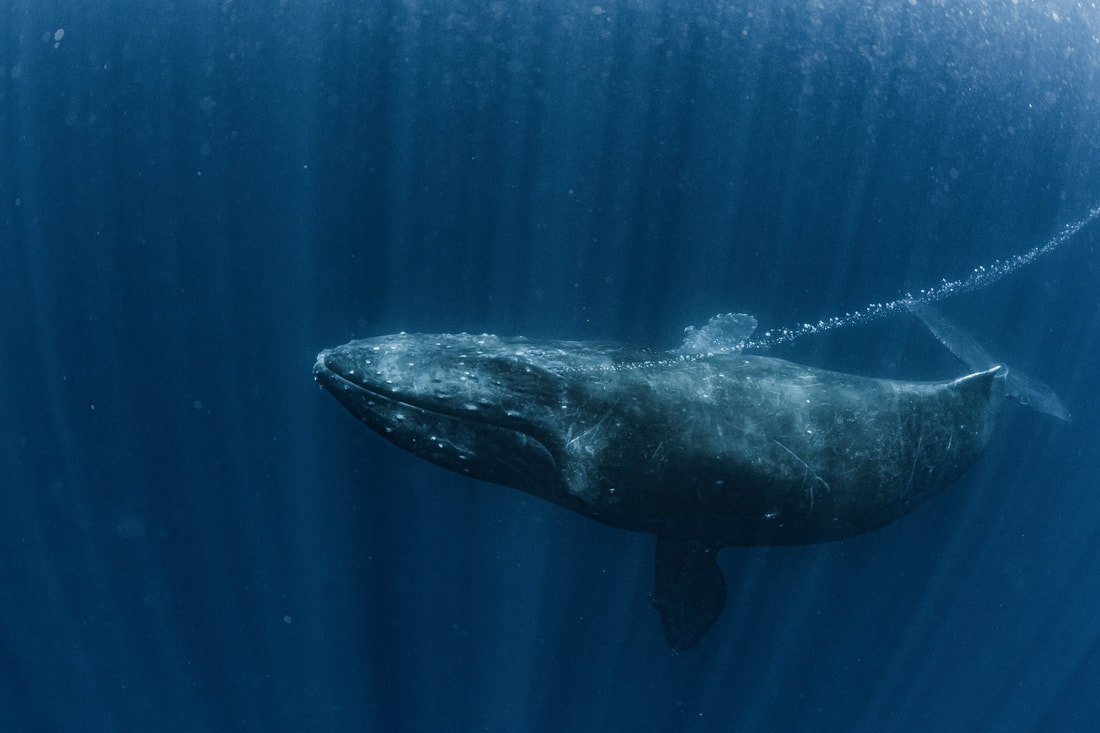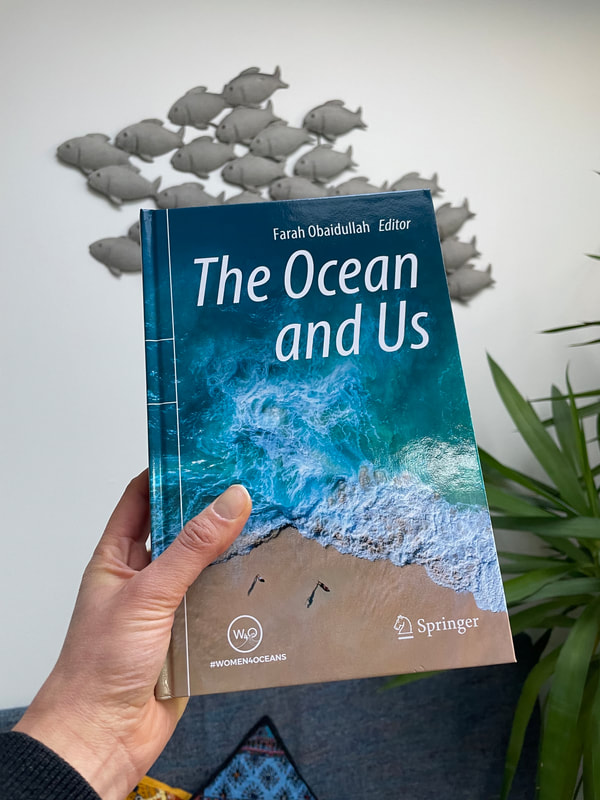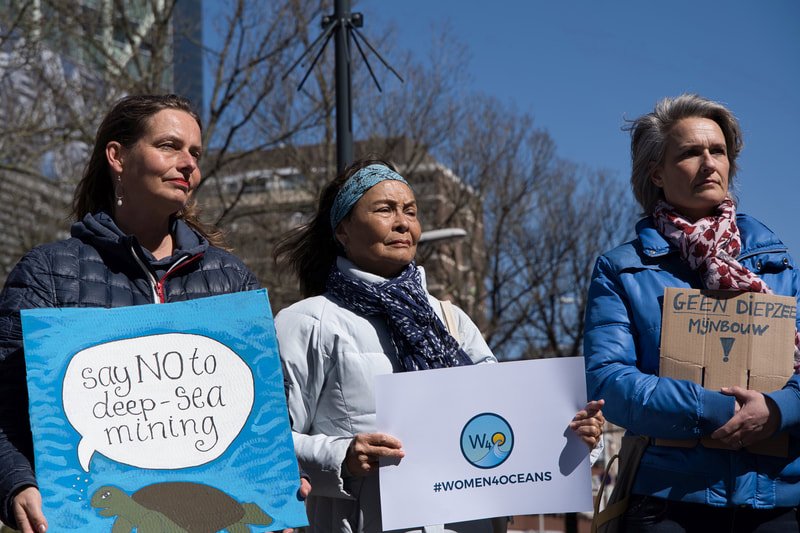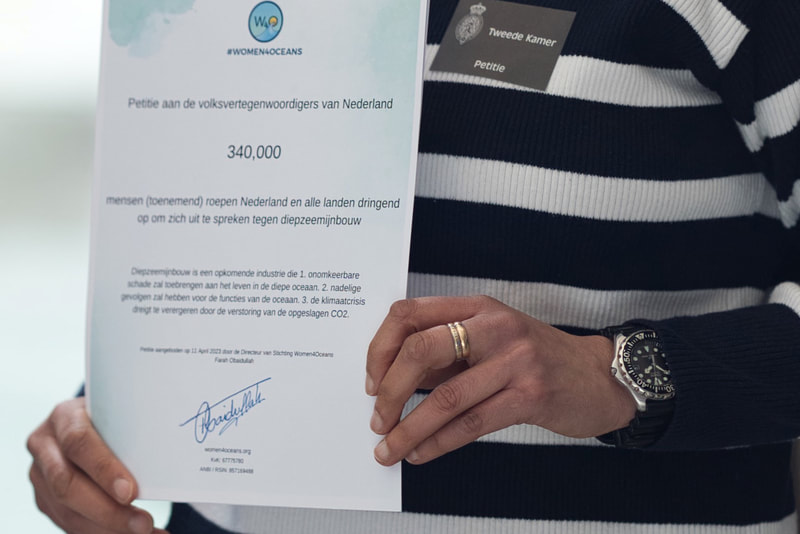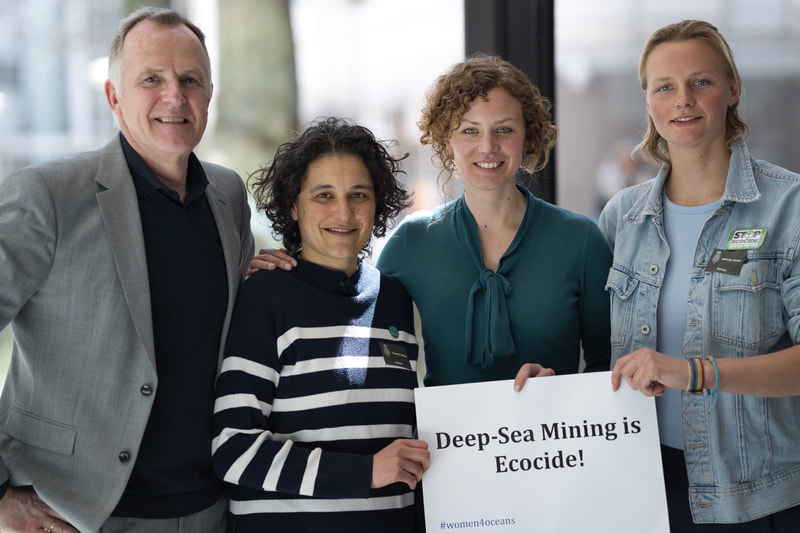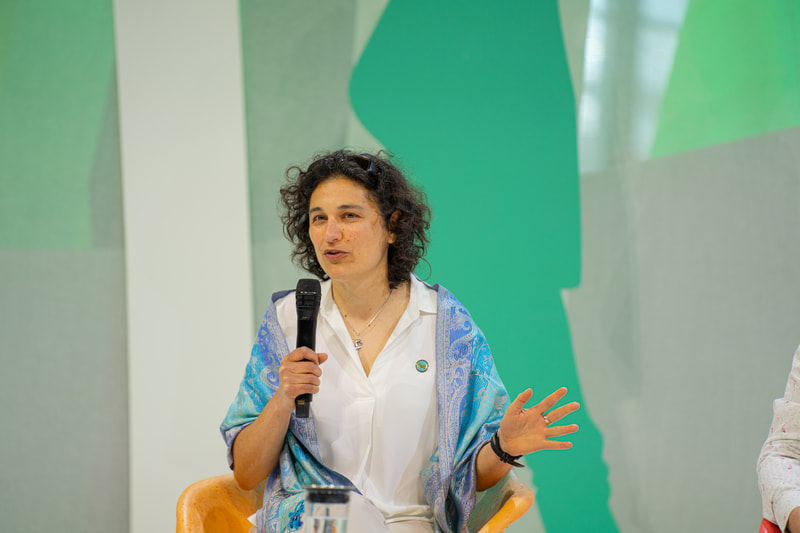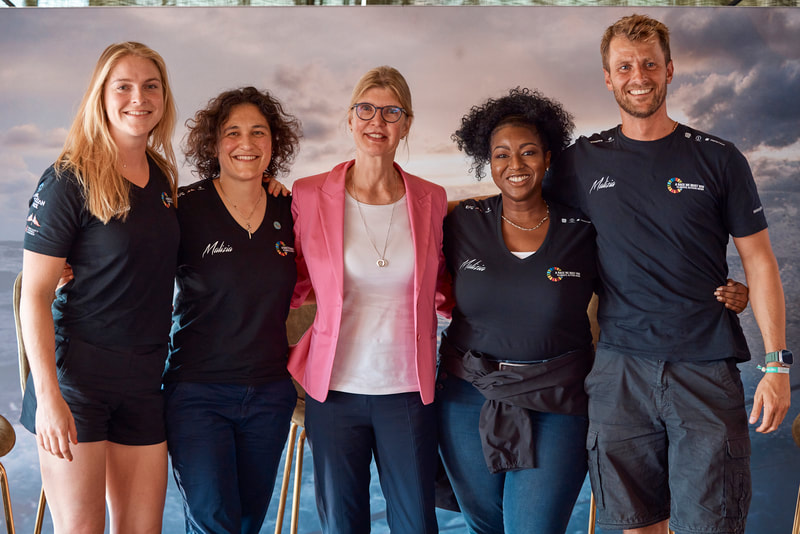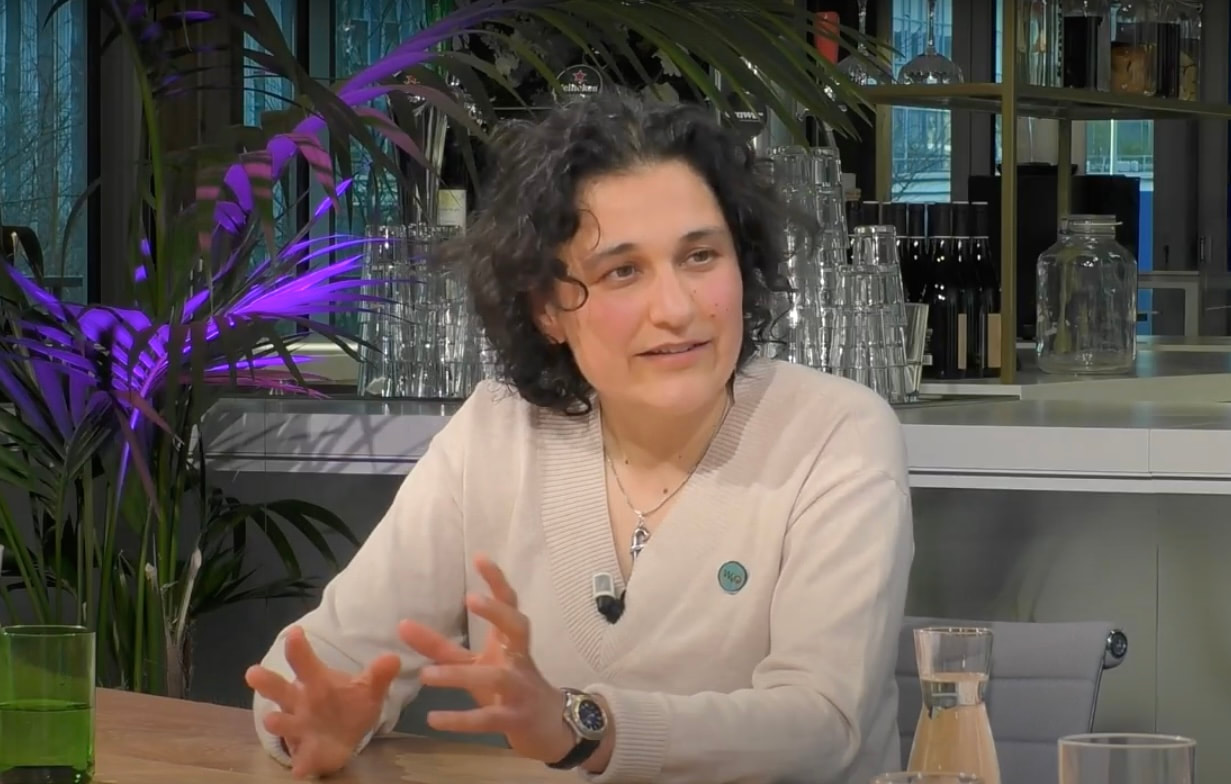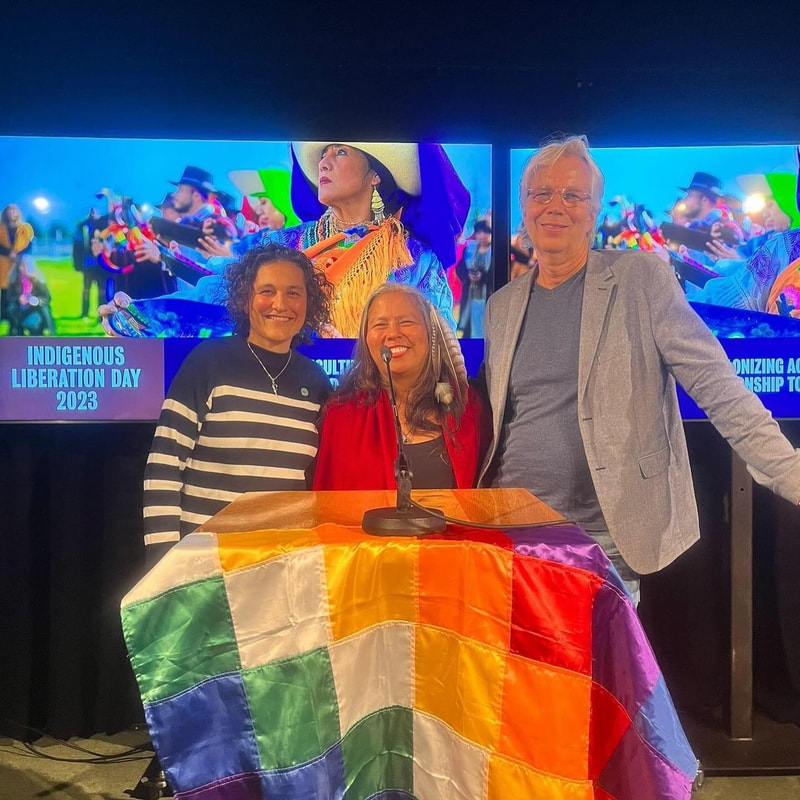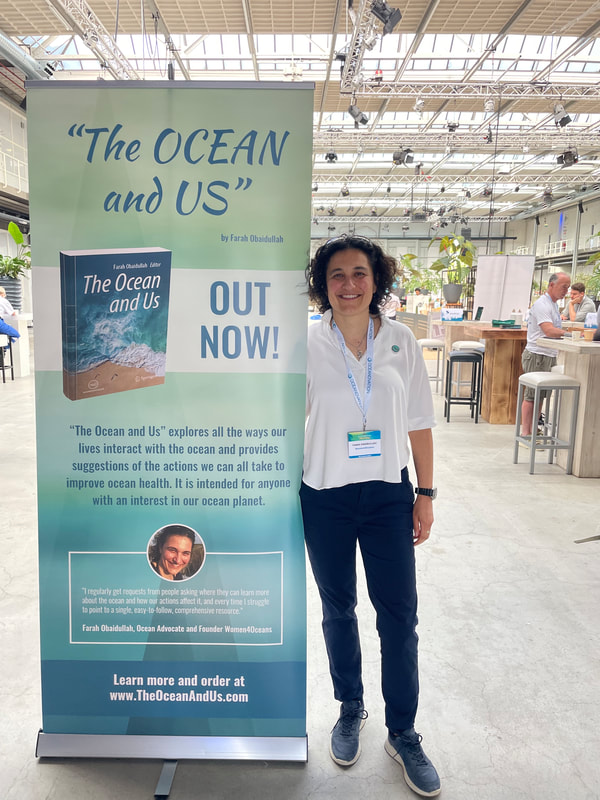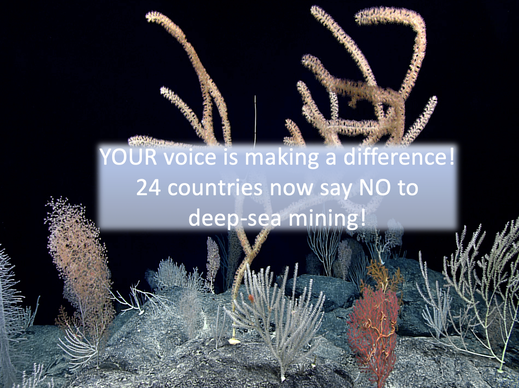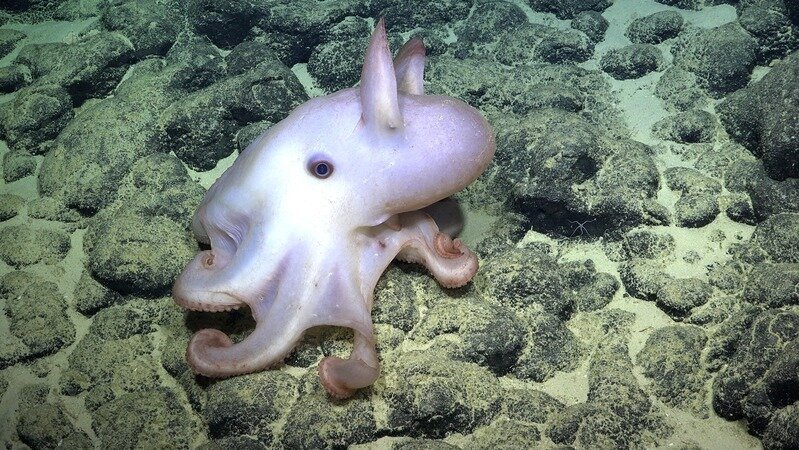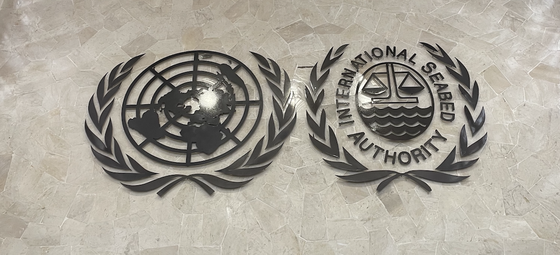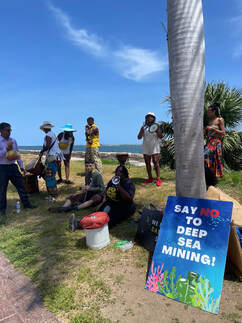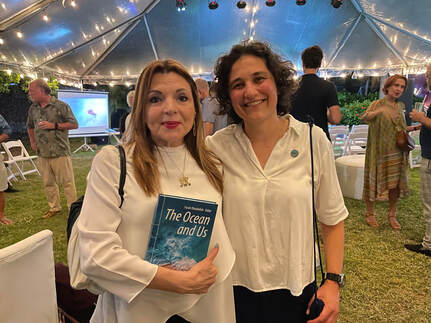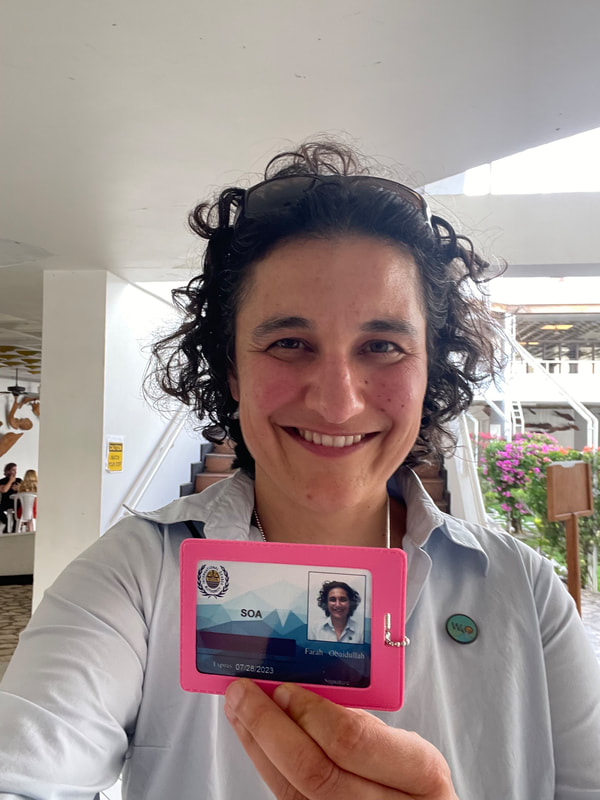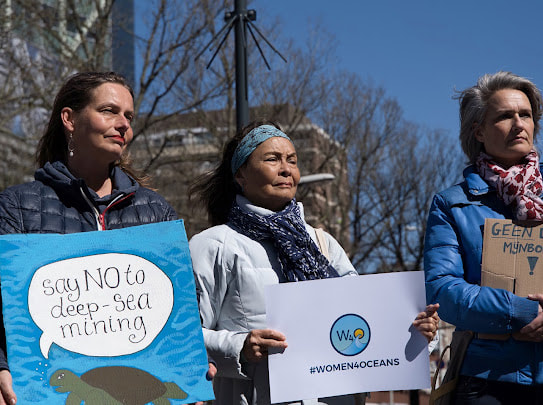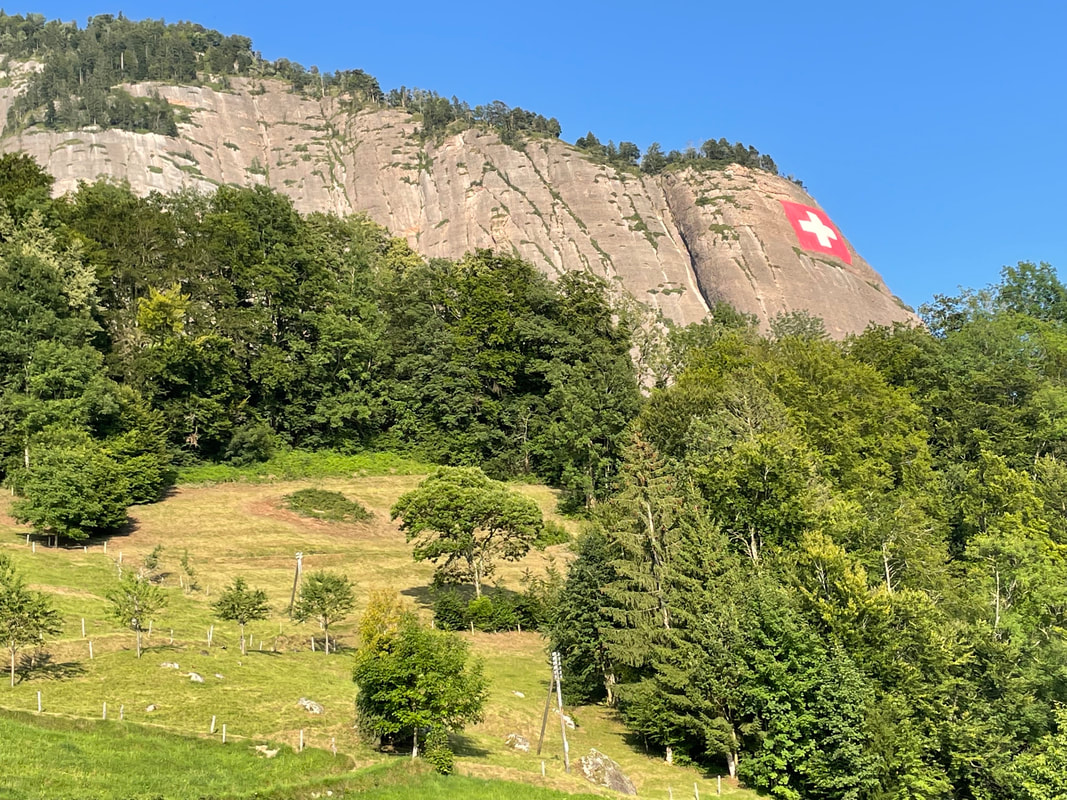|
27 June 2024, The Hague / Lorient. The non-profit organisation The Ocean and Us has partnered with the professional offshore sailing Team Malizia to rally support for a moratorium on deep-sea mining and secure the protection of the High Seas, our global commons. This collaboration with a key partner in the sailing world comes as The Ocean and Us launches the Ocean Hope Expedition, connecting people to the ocean and building collective resistance to deep-sea mining, before the International Seabed Authority meets in July 2025 to decide whether to open the High Seas to mining. The High Seas make up almost half of our planet. This vast area is home to a remarkable diversity of life from the surface to the deep-sea, with countless species yet to be discovered. The High Seas belong to no single nation and are therefore vulnerable to the increasing pressures by some to exploit resources in this last wild frontier. Deep-sea mining is an emerging extractive industry that will irreversibly destroy ancient habitats, affect the ocean systems that sustain us, and will disturb locked-away carbon. If allowed to go ahead, deep-sea mining will unleash a new era of ecological destruction on our already ailing planet. Momentum to stop deep-sea mining is growing. 27 governments are calling for a moratorium or pause on deep-sea mining, as are hundreds of civil society groups, scientists, financial institutions as well as many tech and electric vehicle companies demonstrating that metals from the deep-sea are not needed for the energy transition. Despite this momentum, time is running out. “We have lost over two thirds of global wildlife and each one of us is feeling the impacts of the climate crisis. We cannot afford to embark on a new form of ecocide. The good news is this is an industry that has not yet started and for which global resistance is growing. I am therefore thrilled to partner with Team Malizia to bring hope and importantly empowerment to all and stop this next disaster from starting. Together with Team Malizia and others across the sports, music and art world, we can ramp up support to stop this reckless industry” - Farah Obaidullah, Founding Director of The Ocean and Us. “As sailors, we spend a large part of our time on the High Seas, providing a window to the world on this often overlooked yet significant part of our planet. With our sport comes a responsibility to be stewards of the ocean. We can no longer leave ocean conservation to scientists and activists alone. We must have all hands on deck to protect the global ocean and prevent deep-sea mining from starting” - Boris Herrmann, Skipper of Team Malizia. Although they are now officially announcing their partnership, Team Malizia and The Ocean and Us have already joined forces several times this past year. Most recently, Farah Obaidullah and Boris Herrmann participated in a panel discussion in New York on the urgency to protect the High Seas. The event was co-organised by Team Malizia and the German Federal Ministry for the Environment as part of the sailing team’s Ocean conference series. The event featured high-level speakers, scientists, and ocean advocates, and was endorsed by the United Nations Decade of Ocean Science for Sustainable Development.
Later this year Farah Obaidullah, Founder of The Ocean and Us, will embark on the Ocean Hope Expedition, travelling down the western coast of the Americas from Alaska to Chile and engaging with key stakeholders to gather support for a global moratorium on deep-sea mining. Along the way, local, regional and international personalities from the worlds of music, sailing, art, conservation and government will join her to spark conversations and unite to prevent this next disaster from happening. The journey will be chronicled on YouTube and other social media to gain worldwide support. ________________ To learn more, receive sponsorship packages and support The Ocean Hope Expedition, contact The Ocean and Us at [email protected] , or visit the dedicated donation page at https://donorbox.org/support-ocean-and-us We were so excited to see talk show host John Oliver pick up on the absurdity of deep-sea mining, in his show ‘Last Week Tonight’ a few days ago. He dedicated a whole episode to this speculative and entirely reckless industry, articulating clearly why trashing the ocean for metals is such a bad idea. And in true John Oliver style, he makes the case hilariously.
"I was also super happy and proud to share that the show used clips from the award-winning film In Too Deep: The True Cost of Deep-Sea Mining. A film I initiated and then co-produced with filmmaker and director Maarten van Rouveroy on behalf of the Deep Sea Conservation Coalition." Farah Obaidullah, Founder of The Ocean and Us. 🔗 Watch the full episode on Youtube or the snippets on Instagram >> This blog post is extracted from our Newsletter - read it in full here, or subscribe here! As we approach the launch of The Ocean Hope Expedition, and secure partners, The Ocean and Us is recruiting for three exciting roles!
1. Communications and Marketing Lead 2. Logistics Lead, and 3. Project Manager. Deadline to apply is 5 July for all three roles. They are part-time and temporary for now with a possibility to extend pending further funding and performance. Apply at [email protected]. This is an exciting opportunity to be a critical member of The Ocean and Us, helping to deliver an epic expedition and bringing positive impact to the world! Please spread the word! Sad news coming out of Norway. The Norwegian parliament has voted in favour of opening up the deep-sea (in Norwegian waters) to exploration mining. A couple of take aways from this:
1. We don't need minerals from the deep-sea. Several reports from different distinguished institutions indicate that we have sufficient minerals on land to meet demand. Urban recovery (recycling, bio-leaching), more efficient, less wasteful mining practices, rethinking mass mobility and most importantly changing battery technology, tell us we can do better than ripping up ancient and essential ecosystems. The world's largest EV manufacturers already deploy batteries without cobalt and nickel. Just this week news came out that AI has come up with a battery design that uses 70% less lithium. Solutions abound! 2. The decision by the Norwegian Parliament is for exploration purposes and not yet a decision on commercial extraction. There is still time to stop commercial deep-sea mining. 3. This decision by Norway reinforces the need for a ban on deep-sea mining in international waters (the High Seas). It's one thing trashing sovereign waters for profit but it is quite another opening up half the planet to mining where effective regulation, enforcement and accountability are practically impossible. It genuinely baffles me that with all the advancements in technology, our commitments towards a circular economy and everything we know about the declining state of our only habitable world, there are those in power that are still stuck in the 20th century. We can do better! Actions you can take: Keep signing and sharing the petition. Learn about and support our work here. For the Ocean and Us, Farah Obaidullah #theoceanandus #nodeepseamining As we say goodbye to 2023, I want to share some highlights. With each passing year in ever deepening turbulent times, I realise the importance of looking back in gratitude at my own journey, my development and on the things that I can control.
We published a book! The Ocean and Us brings together the expertise of over 35 specialists. If you want to learn about the ocean and all the ways our lives affect it, then this book is for you! Order here. We launched a petition against deep-sea mining. At one point this was the largest petition on deep-sea mining in the world with over 340,000 signatures collected. Sign here. We handed-over the petition to Dutch parliament. The buzz created and (ongoing) discussions with political parties in the Netherlands resulted in NL taking a position on this issue. With the formation of a new Dutch government we will work to improve that position. With thanks to our funders EarthPercent & Patagonia we were able to attend the final negotiations of the High Seas Treaty at the UN in New York (an historic milestone for the ocean) as well as the Assembly meeting of the International Seabed Authority in Kingston. At the ISA we witnessed the blatant unpreparedness of this woefully ill-equipped body to regulate mining in our global commons. The simple fact is we can’t afford to allow mining on the High Seas at all. I was invited to speak at over a dozen different events in 2023 on the issue of deep-sea mining and the intersection with the High Seas Treaty, including: European Court of Auditors, Luxembourg, Pakhuis De Zwijger, Amsterdam, Change Now, Paris, The Ocean Race & Women in Energy, The Hague. I am a proud ambassador of Stop Ecocide NL. For years I have been arguing that deep-sea mining is the perfect example of ecocide as defined for entry to the Rome Statutes of the International Criminal Court. We changed our name to The Ocean and Us to reflect our broader mission. We joined 1% for the Planet. W4O continues as a project of The Ocean and Us. Among others we are a partner in the EU co-funded WIN-BIG project -empowering women in the blue economy. We are developing an ambitious new project to take the campaign to stop deep-sea mining to a new level! Check-out & support here. I am grateful that I can continue my passion for the ocean. But the truth is it isn’t always easy. Most of what I do, I do with very little funding. Not enough for a salary let alone hire anyone to boost capacity. In my experience ocean advocacy seems reserved for the privileged. If there is one thing I draw courage from it is all the messages from people inspired by what I do and who I represent. Thank you! I am not going anywhere. I will keep getting louder on ocean issues and on deep-sea mining in particular. We have such exciting work planned for the year ahead. Join us! Love & Peace to all. - Farah Obaidullah #theoceanandus #thankyou
Mexico is the latest country to support a moratorium on deep-sea mining. That's 24 countries so far saying NO to deep-sea mining either by supporting a moratorium or a ban on this reckless, out of touch, greed driven, speculative industry.
Growing resistance, not least from YOU, has helped countries like Mexico think twice about opening up the deep-sea to mining. After all, if allowed to go ahead, Mexico sits on the edge of ground zero of deep-sea mining. In other good news North Volt, a major battery developer, joins industry leaders in supporting a moratorium on deep-sea mining. Tech, battery and mobility companies have the foresight to know that we don't need metals from the deep-sea for the energy transition. The power is ours! We are the voices for the planet and our own future. We must build on this resistance and make sure deep-sea mining is not given the green light. Support this mission by donating here. Continue signing and sharing our petition! Thank you! - Farah Obaidullah, Founder of The Ocean and Us
Some good news in such devastating times. The UK joins the growing chorus of nations supporting a moratorium on deep-sea mining.
Over 20 countries now say no to deep-sea mining. The race is on to protect the deep-sea and the ocean systems that sustain us by stopping this reckless industry from starting! Governments are listening to you. Don't give up hope. Where ever you are keep signing and sharing our petition. Together we can stop this disaster from starting! Help us continue our mission for the ocean. Support us. For the Ocean and Us, Farah Obaidullah, Editor of the book The Ocean and Us, Founder of Women4Oceans Photo credit: Schmidt Ocean Institute.
After a week long of observing negotiations at the International Seabed Authority Assembly meeting in Kingston Jamaica, it is clear that the body in charge of regulating deep-sea mining, if allowed to go ahead, and protecting the deep-sea from serious harm is no where near ready to be stewards for almost half our planet. The ISA is not fit for purpose! Press Statement in Dutch and English below.
PRESS STATEMENT (ENGLISH)
July 27th. Kingston, Jamaica. The end of the fourth day of the Assembly of the International Seabed Authority has drawn to a close and the agenda has yet to be approved. Tomorrow is the last day of the Assembly. The two points on the agenda which do not have unanimous agreement are a discussion on the mandatory review of the ISA and a discussion on the protection of the deep-sea. This last point forms the basis of the ISA's mandate. If the Supreme Organ of the ISA, the body responsible for the protection of the deep sea cannot even agree to an agenda how can they be charged with regulating deep-sea mining and therefore the fate of the deep-sea ocean. Deep-sea mining is an extractive industry that will cause irreversible damage to life in the deep sea, have unknown yet detrimental consequences to the very systems in the ocean that sustain us and will disturb locked away carbon. This week's stalling of any meaningful discussion emphasises once again that the ISA is not fit for purpose. It must be reformed to meet the challenges of the 21st century. We are living in a time of a triple crisis: The climate crisis, unprecedented biodiversity loss and universal pervasive pollution. Women4Oceans is calling for a moratorium on deep-sea mining. - Farah Obaidullah, Director Women4Oceans. Sign and share our petition. PRESS STATEMENT (DUTCH) July 27th. Kingston, Jamaica. De vierde dag van de Assembly vergadering van de Internationale Zeebodemautoriteit (ISA) zit erop en de agenda voor deze bijeenkomst van het hoogste orgaan van de ISA is vooralsnog niet aangenomen. Morgen is de laatste dag van de Assembly. De twee agendapunten die het struikelblok vormen zijn de verplichte herziening van de ISA en een voorstel om de bescherming van de diepzee bespreekbaar te maken. Dit laatste punt vormt nota bene de kern van het bestaan van de ISA. Als het hoogste orgaan van de organisatie die verantwoordelijk is voor de bescherming van de diepzee het zelfs niet eens kan worden over de agenda, hoe kunnen we het reguleren van diepzeemijnbouw en dus het lot van de diepzee aan hen toevertrouwen. Women4Oceans blijft pleiten voor een moratorium op diepzeemijnbouw. Diepzeemijnbouw zal onomkeerbare schade toebrengen aan het leven in de diepe oceaan, nadelige gevolgen hebben voor de functies van de oceaan en zal het opgeslagen CO2 verstoren. Dit uitstel van overleg benadrukt opnieuw de noodzaak tot hervorming van de ISA. Dit orgaan is niet meer van deze tijd. - Farah Obaidullah, Directeur Women4Oceans. Teken en deel onze petitie. Contact: [email protected]
The government of The Netherlands released their position on deep-sea mining just days before collapsing.
A letter with carefully chosen language was issued that sets a dangerous precedent for deep-sea mining and allows our government to change tack as necessary. In summary, the Dutch government's position is that we shouldn't mine the deep sea unless it is scientifically proven that it can be done within marine ecological thresholds and on the condition that there are robust rules & regulations in place that can effectively be applied. This sounds good on the face of it, but unlike other countries they will not use the words moratorium or precautionary pause. What they also say is that in order to regulate the industry The Netherlands must have a seat at the table. This means becoming prospective miners themselves by applying for an exploration licence. Again this sounds reasonable. But the truth is The Netherlands is quite happy to reap the economic benefits of mining. "If you can't beat them (and they are not even trying), join them". It is no secret that Dutch marine engineering companies will benefit from whoever goes mining. Recap on why we should not mine the deep sea. - We don't need to. There are enough minerals on land to meet demand (we can improve practices, efficiency & set high standards (in terms of labour, waste streams, regeneration etc). We can recover metals from waste streams to increase supplies. Importantly battery tech is evolving with many big companies already using batteries that do not require metals from the deep (which is why tech & EV companies are saying no to DSM). - DSM will happen in an area that cannot be effectively regulated (the High Seas, which is almost half our planet), where no country will be held accountable (we see this with the fishing industry), where auditing will be impossible (4-6 KM deep, in plumes of sediment). - Areas cannot be restored on human time scales. - We will lose biodiversity we haven't even discovered yet (we have already lost over 2/3 of global wildlife). - Ploughing the seafloor will release CO2 back into the water column (we can't afford this). - Wildlife, including valuable commercial fisheries will be impacted (which is why fisheries associations including from the EU reject deep-sea mining. - We just don't know what the effects will be on ocean systems. But we know that deep-sea mining is an experiment we cannot afford and cannot reverse. (which is why over 700 scientists have lodged their concerns). - Once one country begins to mine, the flood gates open for all to mine. Again with no single country feeling the burden of responsibility because the High Seas belong to no one (but are essential to all of us). With the collapse of the government we will keep a watchful eye at the upcoming assembly meeting of the International Seabed Authority (later this month) to ensure they don't make their already dubious position worse! In Dutch we have a saying: 'met alle winden meewaaien'. A sailing metaphor to mean: we bend with the wind. The Netherlands can still change tack! We will keep pushing for the best outcome for the ocean and us. Thank you for supporting our work. Without you we cannot hold our governments and leaders to account! For the Ocean and Us, Farah ps. Keep sharing the petition. Our work is not over yet! Good news alert! Switzerland announces support for a moratorium on deep-sea mining! They join the growing chorus of countries that say no to this reckless emerging industry. Switzerland's position sends a strong signal to the International Seabed Authority and any countries still on the fence about deep-sea mining. The Netherlands must take note. The Netherlands is service oriented country and their marine engineering capabilities make it very tempting to support mining in the ocean, but the reality is that we cannot afford to trash ancient ecosystems and disturb locked-away carbon for the sake of profits that benefit only a few. Well done to all who helped to make this happen! Activism matters. Your voice matters! Keep sharing the petition. Together we can stop a disaster from starting! Thank you. For the Ocean, Farah |
|
|
|
Certified by:
|
|





